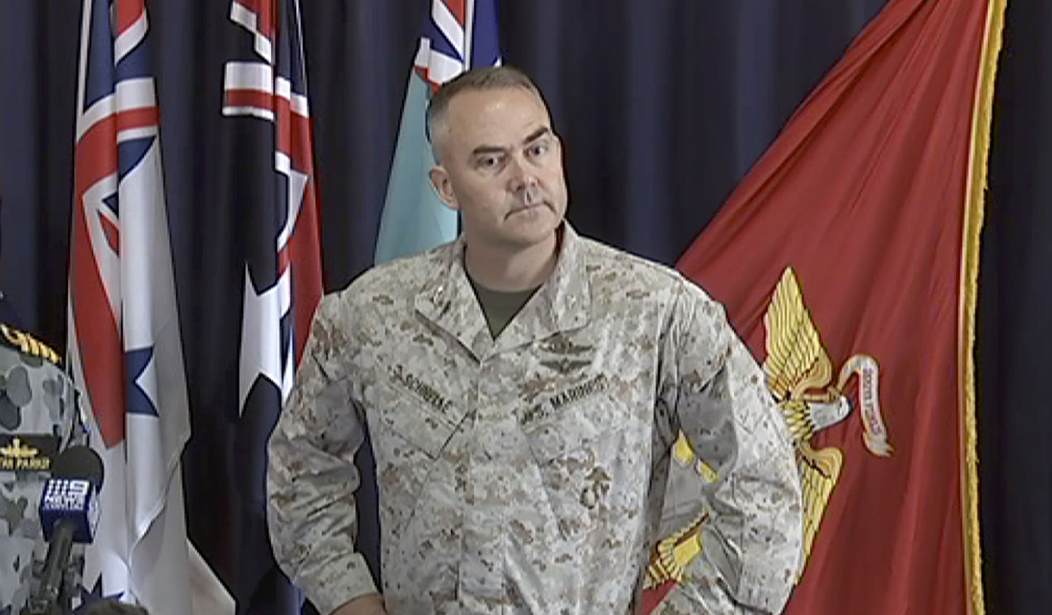They are the United States Marines. Among all of the men and women serving the United States in uniform, they are commonly regarded as the toughest and the ones most frequently called to put it all on the front line. They are, plain and simple, generally seen as heroes. But if they return to base and decline to receive the COVID vaccination, they will find themselves booted out of the service under other than honorable circumstances and potentially have all of their accrued benefits reduced or eliminated. Or at least that’s the indication suggested in an internal memo published at the Free Beacon this week.
Marines will lose their pensions, tuition assistance, and access to the G.I. bill, along with other military benefits, if they refuse the COVID-19 vaccination, according to internal emails reviewed by the Washington Free Beacon.
An Aug. 18 email from Col. Teague Pastel, a commanding officer at the Marine Barracks in Washington, D.C., told colleagues that although “vaccines are still voluntary,” the military believes “they will become mandatory in the near future.” The penalties for refusing the coronavirus vaccination, Pastel wrote, should be in line with others for insubordination. Those penalties include “administration separation,” a demerit in the Marine’s personal file, as well as the forfeiture of various retirement and financial benefits.
“Please continue engaging with our troops on the importance of vaccinating, and stress that it is still voluntary at this time. However, once the vaccine becomes mandatory they need to be prepared to separate and potentially lose benefits,” Pastel’s email reads. “If the Marines are not willing to lose the benefits then they should just get the vaccine now.”
Would this apply only to the Marines or all of the branches? This memo may have come from a USMC commanding officer, but there are very few rules that are exclusive to just one branch. If they’re going to do this it will likely be applied across the board.
So can they really do that? The short answer is, of course they can. All five of our branches of service operate under the Uniform Code of Military Justice, not the normal laws and constitutional rights that apply to civilians. You sign away a significant portion of your rights when you enlist. Your superiors can order you to do virtually anything short of killing yourself.
Of course, you can refuse to obey any order you wish. But there are consequences for making that decision. Relatively minor incidents will be handled locally, and the refusal of a single order would be treated as insubordination (if any charge is brought) and it generally won’t see you going to court marshal or being discharged. That’s what makes this memo sound so out of touch with the realities of military life. If a service member with an otherwise spotless record refuses a single order, a reduction in paygrade, administrative discharge, and the cancellation of their benefits would be a grossly excessive penalty.
The loss of benefits is probably the biggest threat of all. Believe me, while the pay is definitely better than when I enlisted, nobody joins the military to get wealthy. But if you stay in long enough to qualify for full benefits, it can be a great foundation to set you up for the rest of your life, particularly if you go on to a civilian profession and retire from that as well. (They’re known as “double dippers.”)
I’m not personally aware of anyone who ever refused the avalanche of vaccinations we received when I was in the service. Prior to a deployment overseas, we were jabbed so many times you couldn’t lift your arm for days. It was just part of the job. But this is a brand new disease and a brand new type of vaccine technology, so it’s likely that some in the military have questions about it just as many civilians do. Apparently not that many, though, because the Marines report that 74% of their troops have received at least one dose of a vaccine. (The Army has the most hesitancy, coming in at 50% vaccinated.)
Again, the military can do pretty much whatever they like in the end, but it’s hard not to suspect that this decision is coming from the political end of the spectrum rather than the military itself. If punishment under the UCMJ is supposed to be anything it should be evenly applied. Taking someone accused of a relatively minor offense like a single charge of insubordination and meting out a punishment more akin to what they would get for setting the barracks on fire and blowing up their commanding officer’s car just seems wrong.









Join the conversation as a VIP Member